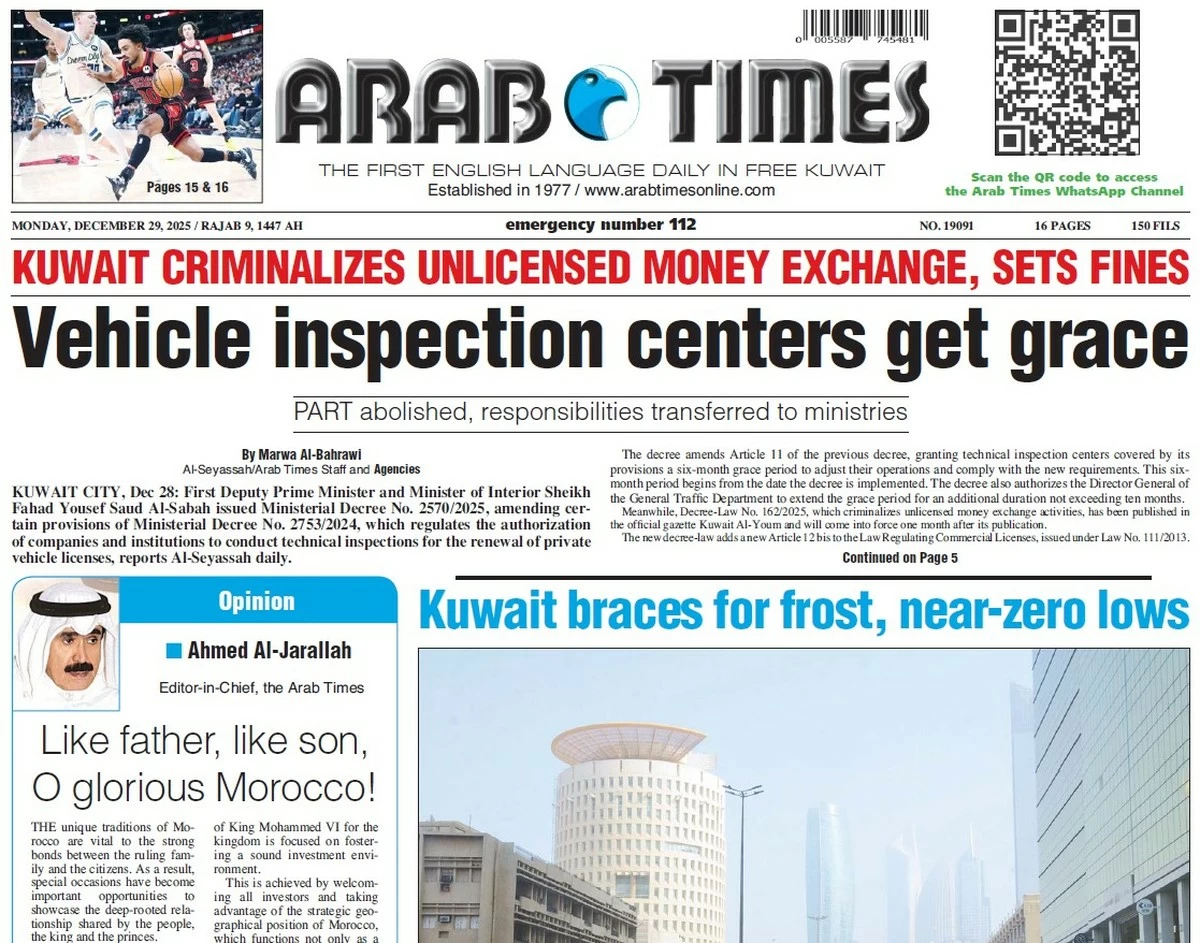22/07/2024
22/07/2024
IT IS good that the Council of Ministers is paying attention to the New Kuwait 2035 Vision, even though it was initially called Vision 2030.
However, for some reason, its implementation was delayed for five years, and it was renamed as “Vision 2040”. It then stayed in the drawers until it got dusted off and became “Kuwait 2035”.

Will the correction of the development path actually commence, or will it remain mere rhetoric? Can this correction be accomplished under the current ministers?
Most of them seek self-interest, personal benefit, and “prestigious” retirement with exceptional benefits.
That is why the majority of them fell in disarray in the first test, which means that they are not qualified to implement a development vision of this size. This is because they don’t have what it takes for realizing such achievement. They are of the same caliber as many former ministers who had these projects with them but failed to acknowledge it for various reasons that we cannot currently enumerate but are known to everyone.
It all began after the approval of these projects, with parliamentary and ministerial quotas, influential figures, and those with narrow interests seeking to gain a share by any means necessary.
In fact, some sought to align these projects with their personal desires and the agendas of their parties, leading to an 18-year delay in implementation. If the current ministerial approach continued as it is, this delay would have extended even further.
If there is serious intention to correct the path, then it is necessary to start amending all the laws that were built on private interests and for temporary reform, and did not serve the country in any way. They had instead increased the closure and backwardness of the country, and led to the decline of the economy, investment, and even society. This is because in successive governments, ministers adopted the “deaf ear” approach, with their primary ambition often revolving around securing substantial pensions for themselves.
This kind of approach does not build a state, but rather turns public institutions into mere personal farms for certain individuals. These legislations have passed by the clouds, because there is no one to hold them accountable.
Based on this, how can one invest in a country that prevents anyone from visiting it, unless he meets subjective conditions?
Even with its current amendments, it still lacks the openness seen in other Gulf countries, which have become hubs for foreign investment and tourism, attracting millions of visitors from around the globe annually.
During the days of the late Sheikh Abdullah Al-Salem, Kuwait was blessed with openness in all fields. Many places of entertainment and amusement, and model public parks were established, and parties were held every week. No unusual conditions, which some parliamentarians later mandated and pressured information ministers to accept, were imposed back then. What they did has been detrimental to the country, which requires round-the-clock efforts to navigate out of this impasse.
Irrespective of the case, we today have a leader who has pledged to monitor the ministers’ performance and hold them accountable, and with him the people. His Highness had said, “We are in a new phase, and I will hold accountable the negligent. The people seek actual achievements and we want unlimited giving. I will follow up the implementation of your work.”
As is known about His Highness the Amir, he follows up and looks into every matter, and sometimes orders the removal of anything that obstructs work.
This is due to the fact that His Highness realizes more than anyone else that Kuwait has retreated from its surroundings for more than 40 years, and it needs hard work and responsibility. The ministry is not an honorary position, but rather of work, and such a position cannot afford to make mistakes.
By Ahmed Al-Jarallah
Editor-in-Chief, the Arab Times


